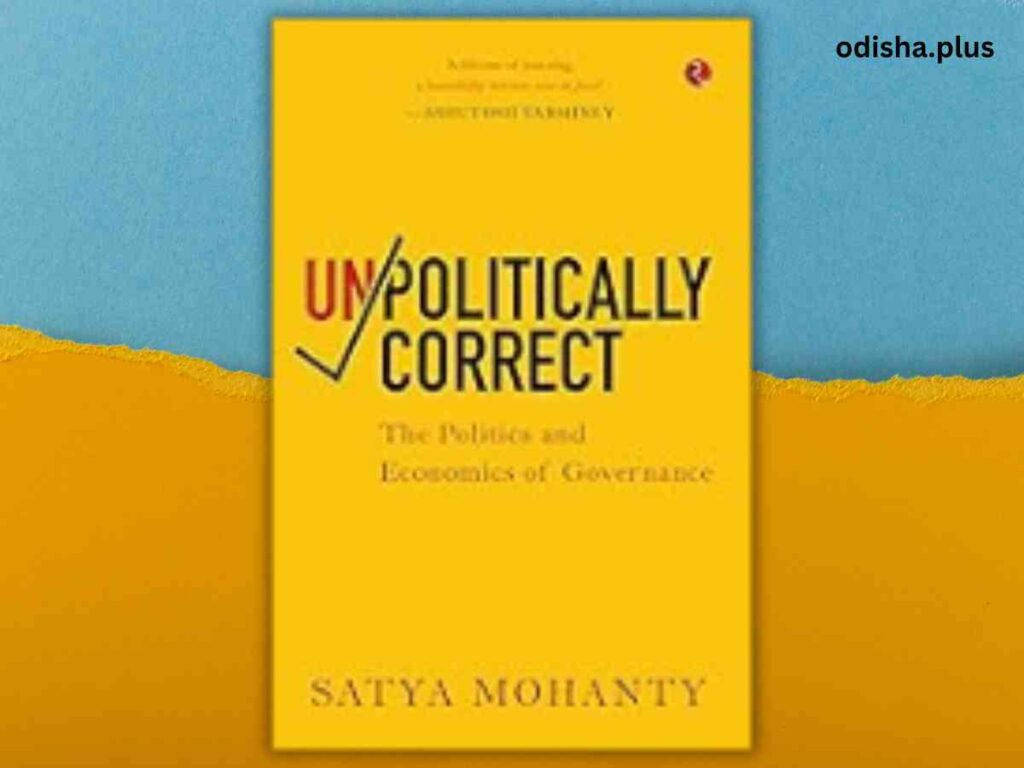The author challenges the prevailing assumption that our current economic policies are designed with a progressive or future-oriented mindset
Bhaskar Parichha

Unpolitically Correct
Satya Mohanty
Rupa Publications
New Delhi
Satya Mohanty is a distinguished poet, playwright, novelist, and author. He has served as the Union Secretary of Education and Secretary General of the National Human Rights Commission, contributing significantly to national newspapers. An Edward S. Mason Fellow at Harvard, he also participated in MIT’s SPURS program. After retirement, he became an Adjunct Professor of Economics at Jamia Millia Islamia and Guru Gobind Singh Indraprastha University in Delhi, taking pride in his public communication contributions.
His latest book ‘Unpolitically Correct’ is a fascinating book to understand India’s development dynamics. Mohanty provocatively challenges the notion of whether inequality is unavoidable and examines if the disadvantaged are compelled to bear the consequences of a clearly pro-wealthy policy agenda. As the book says, India is staring at frightening inequality, with 1 percent of its population holding the lion’s share of wealth.
This book presents a thorough and thought-provoking analysis of various ideas, beliefs, and practices that shape our society, delving into their implications and outcomes. The author challenges the prevailing assumption that our current economic policies are designed with a progressive or future-oriented mindset. Instead, the author argues that these policies are intentionally crafted to create and maintain a distinct hierarchy, resulting in a clear division between a select group of winners and a larger population of losers.
Through a critical lens, the book scrutinizes the underlying motivations and frameworks that inform economic decision-making, revealing how they often prioritize the interests of a privileged few at the expense of broader societal welfare. Mohanty draws on a range of examples and case studies to illustrate how these policies perpetuate inequality, limit opportunities for upward mobility, and entrench systemic barriers that hinder the potential of marginalized communities.
The book invites readers to reconsider the narratives that dominate public discourse around economic success and progress. It encourages a re-evaluation of what it means to have a thriving economy, suggesting that true prosperity should be measured not just by the wealth of a few, but by the well-being and opportunities available to all members of society.
By highlighting the consequences of current economic practices, the author calls for a more equitable and inclusive approach to policy-making that prioritizes the common good over the interests of a select elite.
He analyzes issues related to inequality, health, education, banking, insurance, and employment from a fundamentally distinct viewpoint. He scrutinizes the narratives propagated by successive governments, certain academic circles, and the media. He debunks prevalent myths concerning our economy and those who generate wealth.
Mohanty cautions against the risks of ignoring the evident indicators of a prolonged economic downturn, as well as the mounting fiscal pressures on both central and state budgets. He emphasizes that an excessive focus on privatization, without a commitment to efficiency and equity, can lead to severe repercussions.
Dr Mohanty advocates for a reimagining of economic strategies that prioritize social welfare alongside traditional growth metrics. By highlighting successful case studies and best practices from various regions, the book provides actionable insights that policymakers can adopt to foster sustainable development.
Ultimately, this alternative perspective not only critiques the status quo but also inspires a collective vision for a more just and prosperous future for all citizens of India. It serves as a call to action for leaders, scholars, and activists alike to rethink their approaches to governance and to work collaboratively toward achieving a more equitable society.
The book offers a fresh and innovative perspective on the intricate interplay between politics and economics in the realm of governance. By challenging conventional narratives and exploring alternative frameworks, it seeks to illuminate pathways that could lead India towards a more equitable model of growth.
Through a comprehensive analysis of existing policies and their socio-economic impacts, the author delves into the underlying structures that perpetuate inequality and hinder inclusive development. What the book emphasizes is the importance of participatory governance, where marginalized voices are heard and integrated into decision-making processes.
The book serves as a clarion call for critical engagement with the status quo, urging readers to question the assumptions that underpin our economic systems and to envision alternative frameworks that foster genuine equity and justice.
An essential read for individuals interested in the narrative of India’s development.
(The author is a senior journalist and columnist. Views expressed are personal.)
#SatyaMohanty #UnpoliticallyCorrect #Book #BookReview #Author #Literature #InequalityInIndia #EconomicJustice #Health #Education #Banking #Insurance #Employment






















